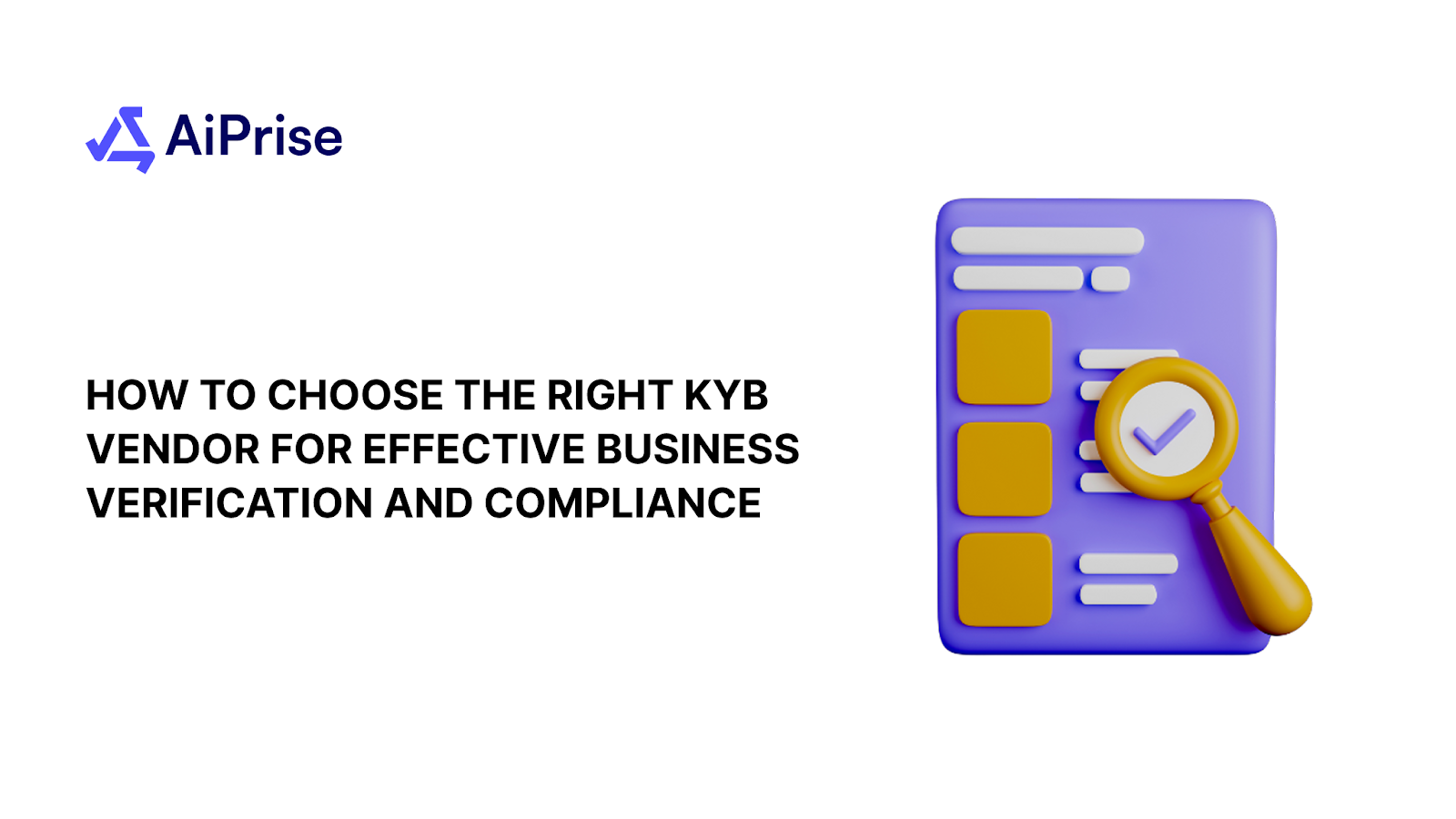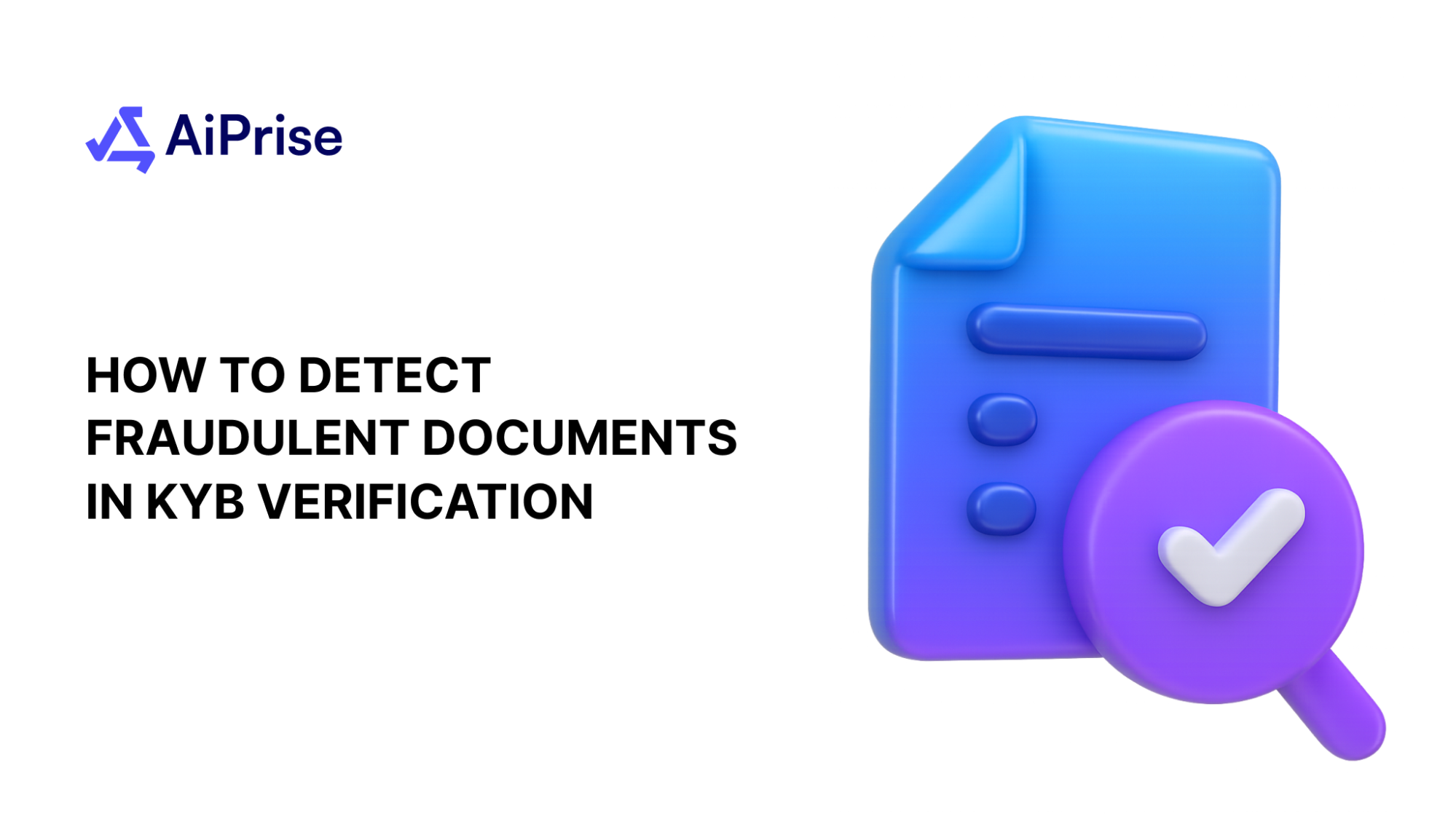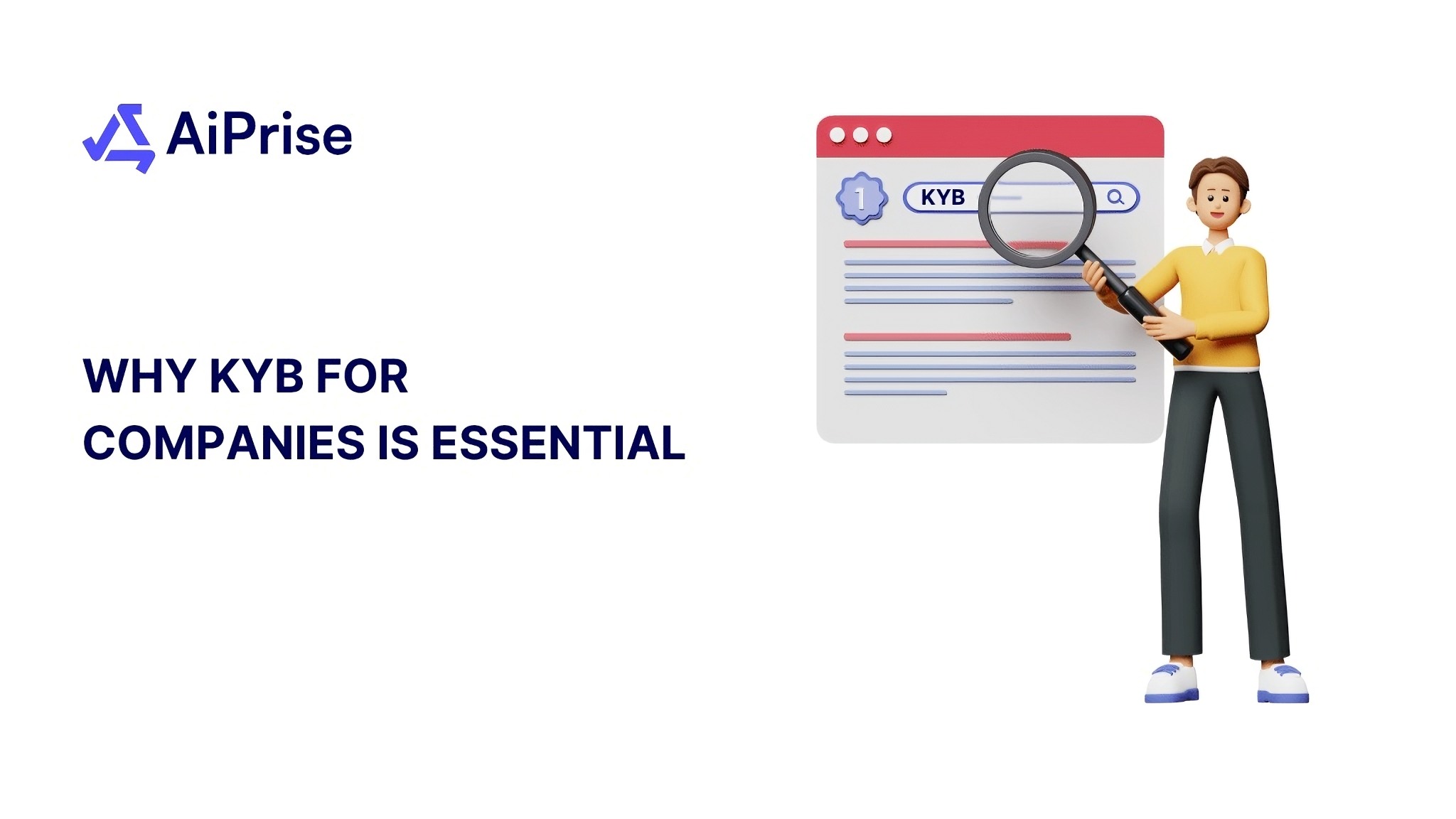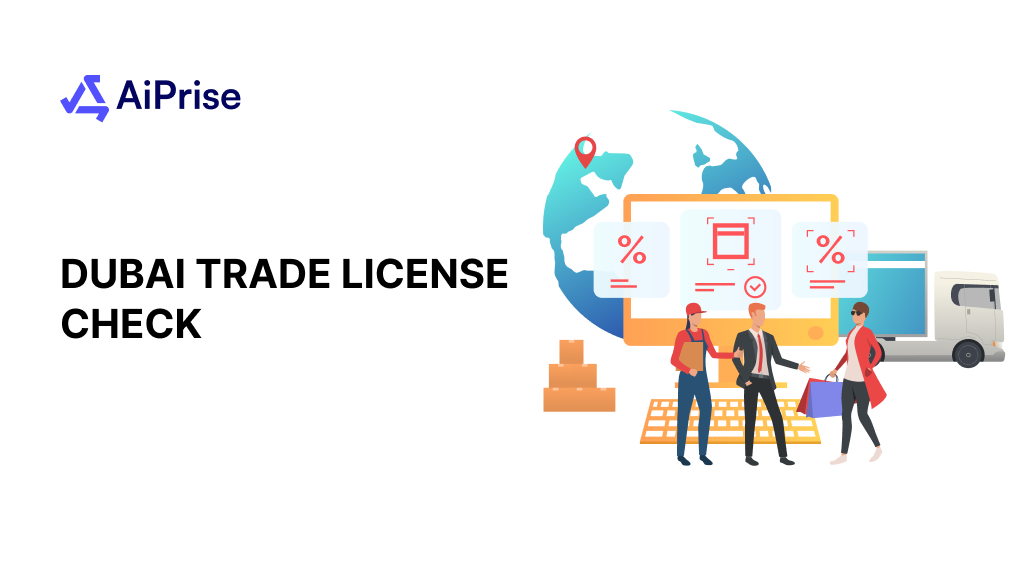AiPrise
5 min read
March 17, 2025
How to Navigate KYB for Stablecoin Companies: Essential Tips and Basics

Key Takeaways










In the world of stablecoins, regulatory compliance is not just a necessity—it’s a foundation for building trust and legitimacy. Know Your Business (KYB) processes are critical for stablecoin companies to meet regulatory requirements and protect against fraud. As a stablecoin company, understanding KYB’s intricacies and following best practices can make compliance smoother and more efficient.
This blog will guide you through the essentials of KYB for stablecoin companies, highlighting key components, challenges, and best practices. Additionally, we’ll explore how technology, like AiPrise’s innovative solutions, can enhance your compliance strategy.
Understanding KYB for Stablecoin Companies
Know Your Business (KYB) is a set of compliance measures to verify the identity and legitimacy of businesses engaging with your platform. For stablecoin companies, KYB ensures that your partners, clients, and counterparties align with anti-money laundering (AML) and counter-terrorism financing (CTF) regulations.
With stablecoins operating in a highly regulated industry, KYB helps you mitigate risks like fraud, money laundering, and reputational damage. It involves validating business details, such as registration information, ownership structure, and risk profiles, to ensure you work with credible entities. Next, let’s examine the key components of the KYB process.
Key Components of the KYB Process
The KYB process is multi-faceted, involving several steps to create a robust compliance framework. Below are the primary components:
- Business Identification: Collect basic details such as business name, registration number, and country of incorporation.
- Beneficial Ownership Verification: Identifying individuals who own or control a significant portion of the business.
- Risk Assessment: Evaluating the potential risks associated with the business based on its industry, location, and financial activities.
- Document Validation: Ensuring the authenticity of submitted documents like incorporation certificates and financial records.
- Ongoing Monitoring: Continuously assessing business activities to detect and address any red flags over time.
Each step is crucial for creating a comprehensive view of the businesses you engage with. Together, they lay the groundwork for a secure and compliant ecosystem.
With this knowledge in hand, let’s discuss the documents and information required for an effective KYB process.
Leveraging intelligent tools like AiPrise that streamline these components can significantly enhance compliance efforts without overwhelming resources.
Necessary Documents and Information for KYB
To comply with KYB requirements, stablecoin companies must collect specific documents and details. Here’s what you should prepare:
- Incorporation Documents: Certificates of incorporation and business registration details.
- Ownership Information: Details about beneficial owners, including government-issued IDs.
- Financial Statements: Recent financial records to verify the business’s financial health.
- AML/CTF Policies: Documentation showing the business’s compliance measures.
- Proof of Address: Utility bills or lease agreements for registered business addresses.
Collecting and verifying this information can be meticulous, but it’s vital for regulatory compliance. Ensuring accuracy and completeness upfront can save you time and prevent issues later. Now that you understand what documents are needed let’s address some of the challenges you might face during the KYB process.
Challenges in the KYB Process for Stablecoin Companies
Implementing KYB in the stablecoin industry comes with its own set of challenges. These include:
- Regulatory Complexity: Different jurisdictions have varying KYB requirements, making it hard to standardize processes.
- Fraudulent Documentation: Verifying the authenticity of submitted documents can be resource-intensive.
- Manual Processes: Relying on outdated methods can lead to inefficiencies and human error.
- Ongoing Compliance: Ensuring continuous monitoring and staying updated with regulatory changes requires dedicated resources.
Understanding these challenges allows you to address them proactively. By incorporating advanced solutions, you can minimize inefficiencies and risks. Next, we’ll discuss how technology can play a pivotal role in streamlining your KYB processes.
Utilizing Technology to Streamline KYB
Modern technology can transform how you approach KYB. Automated solutions can simplify document verification, risk assessment, and monitoring processes.
AiPrise offers state-of-the-art tools designed to enhance your KYB processes. From AI-powered document verification to real-time risk monitoring, their platform ensures accuracy and efficiency. Adopting AiPrise’s solutions gives you a streamlined approach to compliance, saving time and resources while maintaining trust.
Having explored technological solutions, let’s look at best practices for implementing effective KYB processes in stablecoin companies.
Best Practices for KYB in Stablecoin Companies
To ensure successful implementation of KYB processes, consider these best practices:
- Continuous Monitoring: Establish monitoring protocols to keep client information up-to-date and compliant with regulatory changes.
- Training Staff: Regularly train your team on compliance requirements and updates in regulations related to KYB processes.
- Collaboration with Experts: Partnering with experienced compliance providers like AiPrise can provide valuable insights and tools for effective implementation.
- Develop Clear Policies: Create detailed KYB policies that align with regulatory requirements and industry standards.
- Leverage Technology: Use advanced tools like AiPrise to automate and optimize your KYB workflows.
- Maintain Comprehensive Records: Keep detailed records of all KYB activities to demonstrate compliance during audits.
Implementing these best practices will help fortify your compliance framework while fostering client trust. Now that you have a solid foundation in best practices, addressing potential challenges and how to overcome them effectively is essential.
Potential Challenges and Overcoming KYB Hurdles
As you implement your KYB procedures, be prepared for potential hurdles:
- Resistance from Clients: Some clients may be hesitant to provide extensive documentation. Clear communication about compliance necessity can alleviate concerns.
- Data Privacy Concerns: Ensure your data handling processes comply with privacy regulations to protect sensitive client information.
- Keeping Up with Regulations: Regulatory landscapes are constantly changing; staying informed through industry news and updates is crucial for compliance.
By proactively addressing these challenges, you can maintain a robust KYB framework that supports your stablecoin operations effectively.
Conclusion
KYB is a cornerstone of regulatory compliance and operational security for stablecoin companies. You can build a reliable compliance framework by understanding its components, overcoming challenges, and implementing best practices.
Partnering with innovative platforms like AiPrise can simplify your KYB efforts and ensure accuracy, efficiency, and adaptability. Visit AiPrise today to explore how their solutions can empower your compliance strategy.
Investing in an intense KYB process safeguards your operations and reinforces trust with regulators and stakeholders. Let AiPrise help you take your KYB efforts to the next level!
You might want to read these...

Aiprise has helped streamline our KYB (Know Your Business) flow in 100+ countries. No other tool comes close.





Speed Up Your Compliance by 10x
Automate your compliance processes with AiPrise and focus on growing your business.


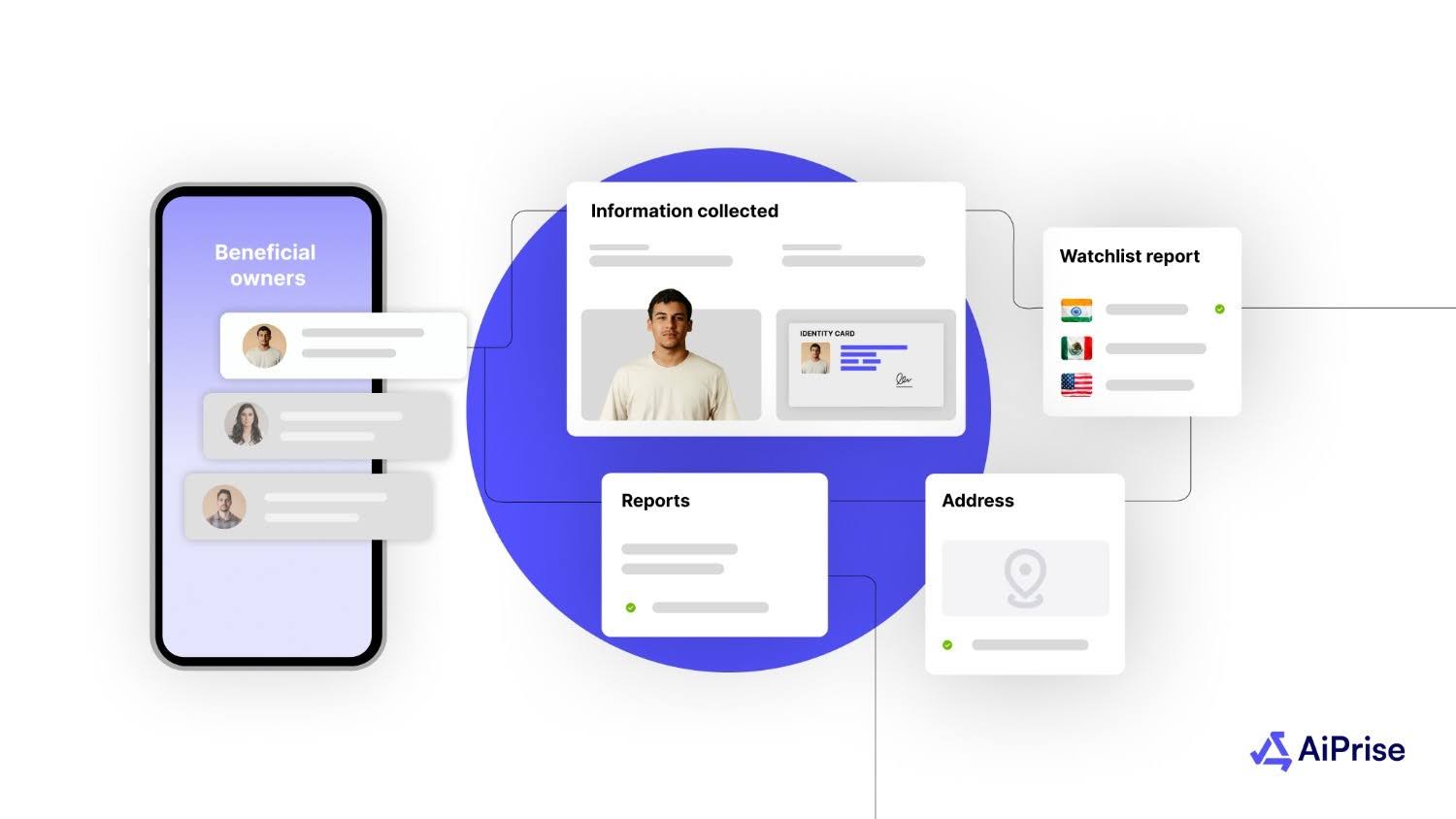

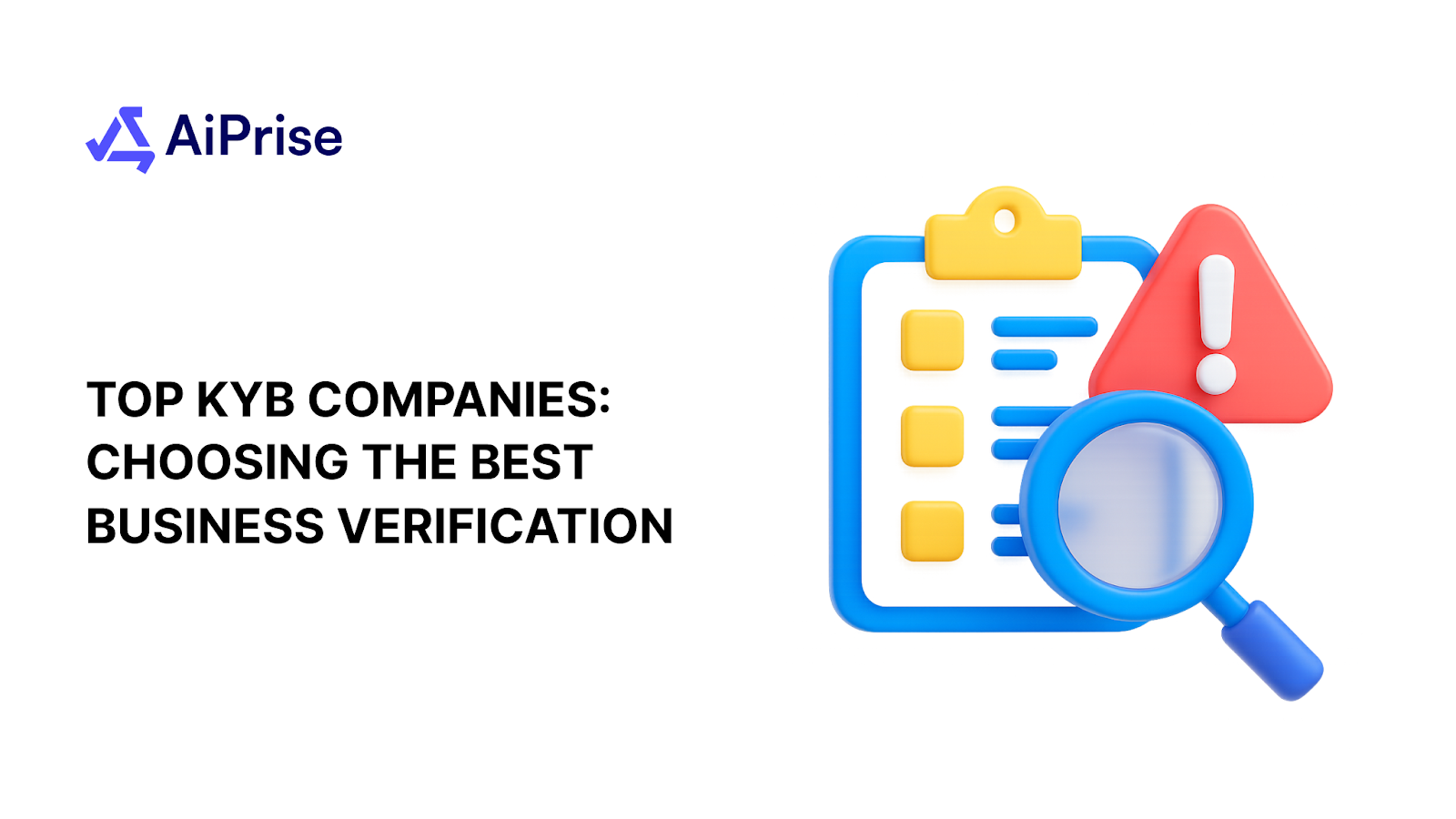
%20Can%20Improve%20Your%20Compliance%20Strategy.png)
